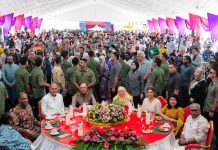 By Heeran Kaur | MENTAL HEALTH |
By Heeran Kaur | MENTAL HEALTH |
I had the good fortune to undertake the first study on mental health involving the Sikh community in Malaysia. It was the first full-blown study that I am aware of done on the experiences of Sikhs in Malaysia seeking support for mental health. That, coupled with having to draw from research done in other jurisdictions, made it all the more imperative for me that this study be done well so that it could be a useful point of reference for future explorations here on our community.
There have been studies done on Sikhs in Malaysia before but in different contexts. There was one published a couple of years ago in the International Journal of Academic Research in Business and Social Sciences on Sikhism’s Identity and Challenges in Malaysia. Then there was an initiative by a Malaysian-based youth organisation Sikh Naujawan Sabha Malaysia (SNSM) called “It’s Ok To Not Be OK” in Samelan 2019 encouraging our youth to give their opinions on mental health.
It is heartening though that researchers in countries with larger Sikh populations are doing some ground-breaking work which has potential to usher in better services and by extension better outcomes for Sikh clients opting for mental health services. For instance, Sikhs in the US were prompted to address these issues and the US Sikh Healthcare Chaplaincy Group issued a guidance note on working with Sikh patients dealing with mental health issues. The guidance note was premised heavily upon the findings of a Sikh Canadian author and researcher. His Sikh Spiritual Model of Counselling was instructive in that the Sikh perspective on mental health is that it ought to be dealt with as any other issue or illness that occurs in the lifetime of an individual. Some strategies proposed included using a culturally based model of counselling, respecting Sikh practices and understanding our close-knit family structures.
The Canadian author had presented a Sikh religious and spiritual view of mental health. With the continuing migration of a large numbers of Sikhs to the West, mental health experts were exhorted to be more aware of their clients’ worldviews and culture-religion friendly models of counselling. In that research, the author proposed a Sikh Spiritual Model of Counselling. He was moved to develop and propose the model after his observations that clients would come for one or two sessions and then they would terminate therapy. His investigation into underlying causes led him to the conclusion that Sikh clients found Western models of counselling incompatible with their belief system. The author noted that the number of clients seeking counselling had grown manifold with increased number of sessions since he began to use the Sikh Spiritual Model of Counselling.
In fact, some Sikh practitioners have even proposed that integrating Sikhism based models into therapeutic settings may be the way forward. The Sikh Life-Stress model as a culture-specific intervention delineating a Sikh perspective was outlined as a framework to be incorporated into Western counselling contexts and conventional counselling approaches.
The relationship between mental health, culture, spirituality and religion is complex and not one that can be easily resolved without focused attempts at making personal journeys of minority clients seeking assistance worthwhile for them. In studies focusing on identity and religion, like one in the UK in 2015, Sikhism was shown to be “as much a religious identifier as it was an identity one.” Sikh clients may well wish to involve religion in their psychological equations and therapeutic relationships.
THE MALAYSIAN STUDY
It’s only possible for us researchers and practitioners here in Malaysia to make new discoveries and propose evidence-based interventions to benefit the Malaysian Sikh population if more and more Sikhs walk in through our doors to help those of us working in the field to gather feedback and data.
The study was undertaken qualitatively to explore the lived experiences of Malaysian Sikh individuals in seeking psychological assistance. I created brief demographic data guidelines to obtain respondents who were sourced by purposeful sampling, including through gurdwaras, social media and by word of mouth.
The criteria to select participants was carefully deliberated and established prior to the recruitment and selection processes. This included:
- Identify as belonging to the Sikh faith and
- A Malaysian citizen because of the nature of the study;
- At least 18 years old – a minimum age requirement was necessary to ensure suitable responses of experiences; and,
- Either presently in therapy or was in therapy before – to ensure that the experiences were available for exploration and because interview questions were structured based on experiences in seeking psychological assistance.
Six eligible participants were selected. Of these, one was recruited for the pilot study. The data collected was useful and the pilot was included in the main research.
As with any research, this study, too, has limitations. One such would be gender. All participants were female. I was curious whether this was due to limited recruitment opportunities or because very few Sikh gentlemen would consider seeking psychological assistance and perhaps even fewer who would come out to say that they had met with professionals. It would be interesting to explore how Sikh males would respond to having their experiences examined.
Then, there was the fact that all the women I met with were urban dwellers. That means the Sikh sub-urban and/or rural mind-set presents researchers with further opportunities to gather data. And of course living in multi-religious, multi-cultural, multi-lingual Malaysia presents the fascinating possibility of conducting focus groups and observing the inter-cultural communication that happens during group interactions.
I hope more Malaysian researchers, Sikhs and non-Sikhs, pick up the gauntlet and advance our understanding of mental health in Malaysia.
Heeran Kaur is a Malaysia-based counsellor and therapist. The lawyer-turned-mental health advocate had presented a paper on her research on Sikhs at the International Seminar of Counselling and Well-Being (ISCWB 2020), organised by Universiti Malaya, in November 2020.
RELATED STORY:
How Malaysian Sikhs react to mental health? A new study has some answers (Asia Samachar, 20 Jan 2020)
Dr Sangeeta powers formation of mental health foundation (Asia Samachar, 20 Aug 2020)
ASIA SAMACHAR is an online newspaper for Sikhs / Punjabis in Southeast Asia and beyond. Facebook | WhatsApp +6017-335-1399 | Email: editor@asiasamachar.com | Twitter | Instagram | Obituary announcements, click here |
































